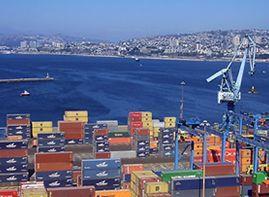
The rising cost of raw materials will be the biggest challenge to the food sector over the coming year.
That's according to results released from a report compiled by financial advisers Grant Thornton, entitled 'Hunger for growth: food and beverage looks to the future'.
More than 40 per cent of UK respondents working within the sector predicted that raw material prices will rise by up to five per cent, raising a barrier to growth.
Trefor Griffith, head of food and beverage at Grant Thornton, said: “There’s been a new wave of optimism across UK food and drink businesses, partly driven by export opportunities and partly due to improved consumer sentiment, which is increasing investment in the sector.
'However, wider challenges remain for the sector, not just in terms of rising raw material prices, but also in managing the volatility in the price and supply of many key commodities, and ensuring the continuity of supply when product availability is short in the UK or globally.”
Despite the UK being a net-importer, findings from the report indicated there will be an increase - a move from two per cent to five per cent over the next two years - in the number of UK businesses selling at least 25 per cent of their products abroad.
Griffith said: “Seven out of 10 respondents said growth was the more important factor over the next year rather than cost reduction, a sentiment that can partly be accounted for by increased export opportunities. This optimism, along with beneficial exchange rates, trusted 'safe' supply chains and demand for British brands and products are all likely to contribute to an increase in UK food and beverage exports.”
On supermarket shelves, the report found that approximately half of UK respondents expect positive effects from the trend towards locally sourced goods, with very few expecting a negative impact.
Businesses have invested heavily to maintain and improve product integrity and to apply more rigour to their supply chains, some as a direct result of the horsemeat scandal.
Griffith added: “Recently, there’s been a trend towards locally-sourced food, and interestingly, some supermarkets have adopted a ‘UK sourcing only’ policy on all meat products, forcing many suppliers to use only UK meat, changing food chain behaviour and encouraging investment in UK production.'
The report also found that almost two-thirds of UK food and beverage businesses are likely to require additional funding over the next 12 months, and that outside of Western Europe, China (37 per cent), South East Asia (30 per cent) and Africa (37 per cent) are the three key markets many UK food and beverage firms are intending to enter over the next two years.



